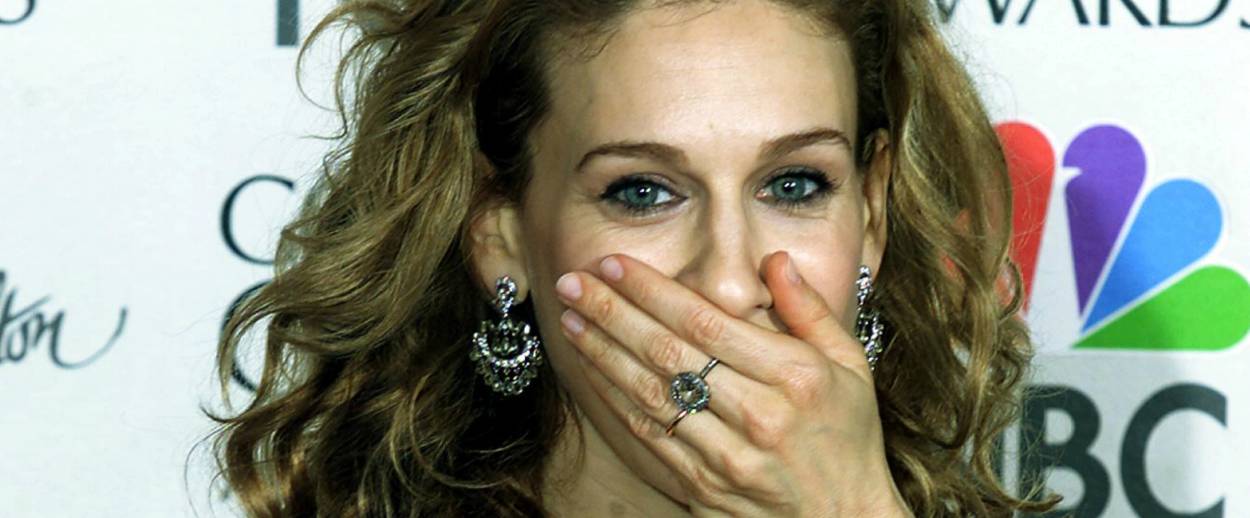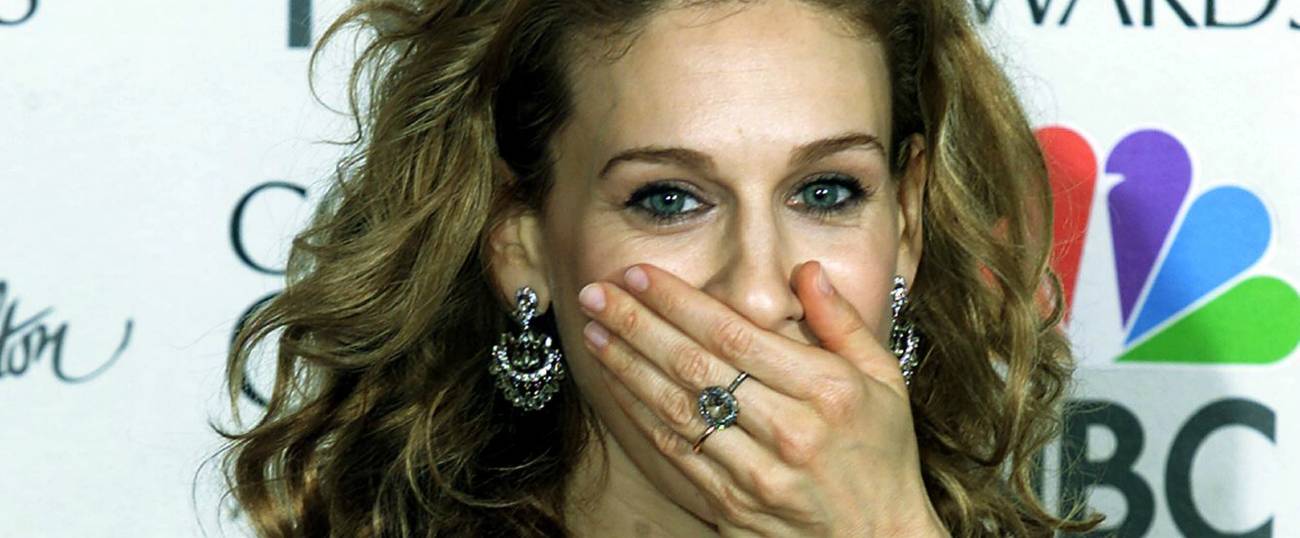Sarah Jessica Parker Is ‘Not a Feminist’
The ‘Sex and the City’ star is apparently all mixed up when it comes feminism




It has been, to say the least, a good month for women, and for feminism.
Hillary Clinton broke through the glass ceiling to become the first major party female presidential nominee. (And, if the recent, encouraging polls are any indication, she may soon become the first female president). President Obama published a gorgeous essay in Glamour about the rights of women, the injustice of so-called “gender expectations,” and the world he wants to leave his daughters. And Helen Mirren told Marie Claire: “Any woman now, actually, is a feminist. They don’t realize it, because they’re living in a world feminism has, to a certain extent, created for them. Which is very exciting, because it’s entitled. That’s what I love about them. They’re entitled.”
Speaking of… Sex and the City star and Marie Claire cover girl Sarah Jessica Parker has gone oddly out of her way in the same magazine to declare that she is not the dreaded F-word. Said Parker, reiterating her controversial remarks in Cosmo last year (although not with particularly anymore clarity):
I am not a feminist. I don’t think I qualify. I believe in women and I believe in equality, but I think there is so much that needs to be done that I don’t even want to separate it anymore. I’m so tired of separation. I just want people to be treated equally.
Well, SJP, I’m sorry, but if that’s what you want, you do qualify as a feminist because equality is, quite frankly, what feminism is all about: the idea that women are as fully human as men, with all the varying ranges of desires, ambitions, and emotions that such a thing entails. That’s literally it. And as for the vague notion about “what needs to be done,” the efforts of the feminist movement to advance the interests of women over the years is more about correcting and challenging the inherent biases and institutional sexism that has made the world a deeply unfair place for females to live in over the past, say, 5,000 years.
As for the rest of SJP’s half-answer and her the longing for a lack of “separation,” as Parker terms it, there’s a word for that too: intersectionality. As President Obama says in his own self-identifying feminist words: “That’s what twenty-first century feminism is about: the idea that when everybody is equal, we are all more free.”
I don’t think this is anything Sarah Jessica Parker would disagree with, which is why I’m worried when I consider her reluctance to identify as a feminist, combined with what I’m assuming is the way she fears she would be perceived if she did as much. It’s a matter of semantics.
Much as some claim that Arabs can’t be anti-Semitic because they too are Semites, or how the real threat to the Constitution is taking away the right of religiously homophobic business owners to refuse good and services to gay people, much of the opposition to feminism has been to devilishly make the victim into the oppressor. In this view, a feminist woman becomes an angry, vengeful harpy asking for special treatment, looking to enrich herself at the expense of others (men). It’s a persistent argument that has been around long enough for many women to internalize it to the point of subconscious capitulation. (Think: “Is it fair of me to ask for a reasonable maternity leave? Do I really deserve that raise? Wouldn’t it be easier to let the boy win because he won’t like me anymore if he doesn’t?”)
Feminism is about silencing that voice, in the world, and perhaps most importantly, in your own head. That’s all it’s ever been and I hope the next time Sarah Jessica Parker is asked to make a statement about it, that she’s got the guts to say so. As Helen Mirren said: “[Women] are living in a world that feminism…has created for them.” And to claim otherwise? That’s about as outdated as being obsessed with cupcakes and shoes.
Rachel Shukert is the author of the memoirs Have You No Shame? and Everything Is Going To Be Great,and the novel Starstruck. She is the creator of the Netflix show The Baby-Sitters Club, and a writer on such series as GLOW and Supergirl. Her Twitter feed is @rachelshukert.